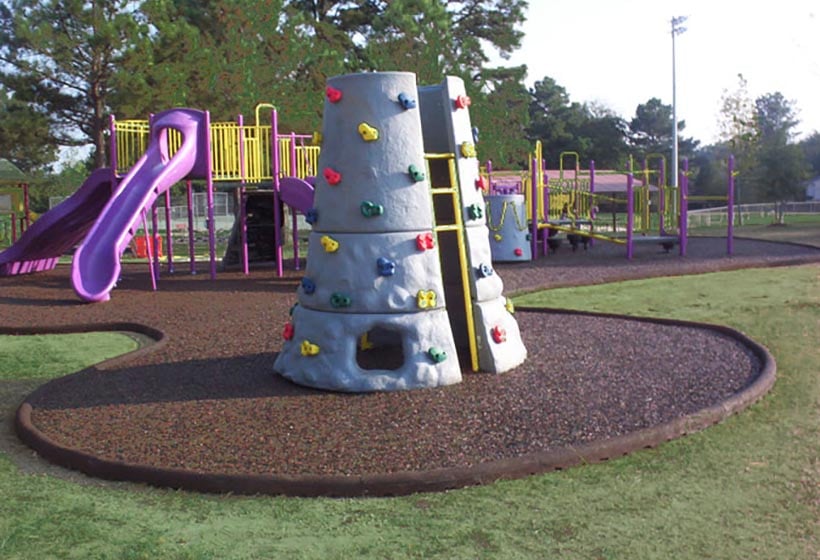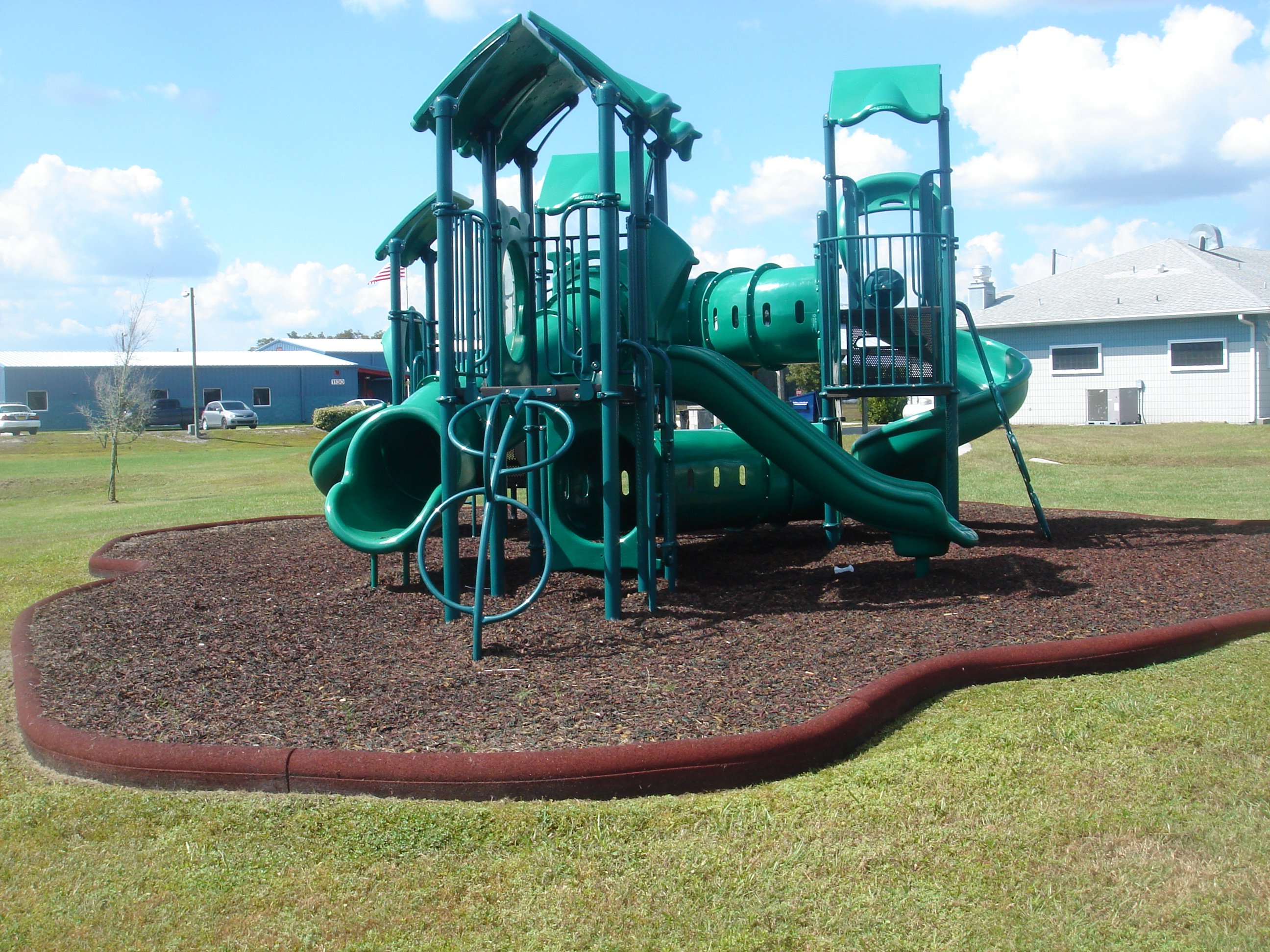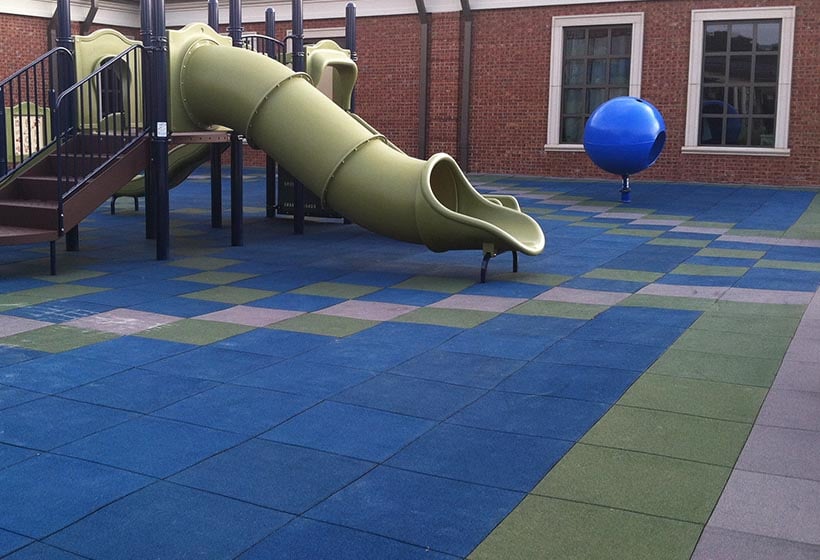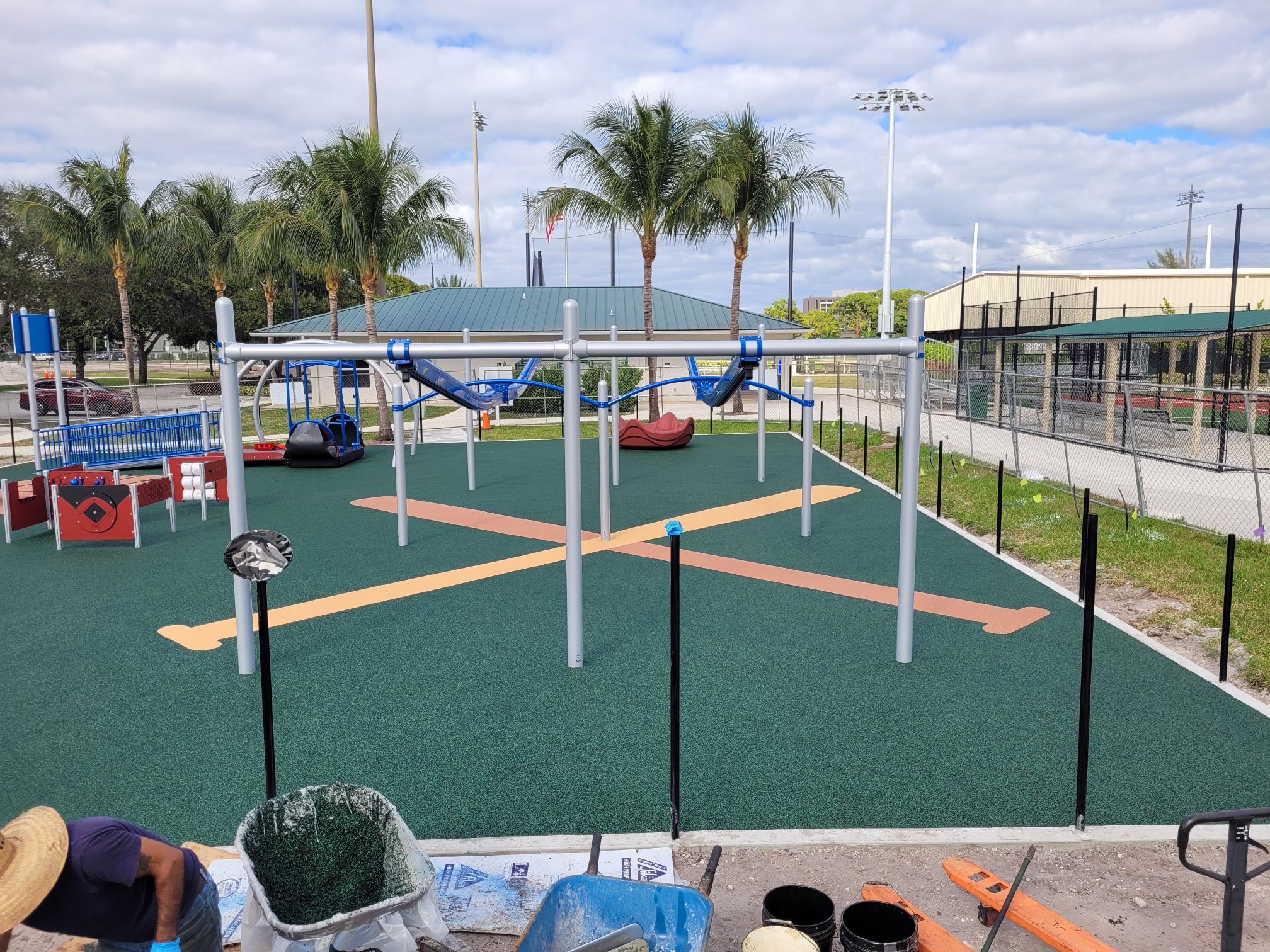Playground mulch is a popular surfacing solution, not only because it's affordable, but also because it is one of the safest loose-fill surfacing options for young children. Adding buoyancy to the surface, playground mulch provides a cushion in the event of those inevitable tumbles.
If you have designed a playground and opted for playground mulch surfacing, then you will want to know how to best maintain and care for this mulch so that it lasts for many years to come.
Types of Playground Mulch
When opting for loose-fill surfacing for your playground, it's important to know that there are several different types of playground mulch to choose from. The most popular choices for loose-fill surfacing include:
- Engineered Wood Fiber — As a type of compost mulch, engineered wood fiber is considered to be a sustainable and affordable surfacing solution. However, it does not last as long as other loose-fill surfacing options.
- Rubber Mulch — Created from premium recycled rubber materials, rubber mulch is an affordable, eco-friendly surfacing solution that tends to require less maintenance than engineered wood fiber. It is also more durable.
As you are considering the various types of playground mulch that are available to you, you will want to keep the following in mind:
- Safety Standards — Safety should be your top priority as you develop your playground and choose a surfacing solution. Knowing the fall height requirements as well as the depth required for your surfacing material will allow you to make the best choice.
- Cost-Effectiveness — Naturally, your budget is also a major consideration. Choosing a surfacing solution that is not only affordable, but also long-lasting, will allow you to get the most value out of your investment.
- Accessibility and Inclusivity — The surfacing solution that you select will determine who can play on your playground. It's essential to choose a surfacing material that meets all ADA standards, giving all children an equal opportunity to enjoy the playground that you have created.
Regular Maintenance Practices for Playground Mulch
Once the surfacing material has been installed on your playground, you will need to maintain it in order to protect the integrity of the playground and ensure that every child has a safe and enjoyable experience.
Loose-fill surfacing is prone to redistribution over time, not only because of the children playing on it but also because of the weather. It is important to maintain even surfaces, which means that routine raking and leveling will be required. In addition, you and other park maintenance staff members should regularly inspect the surfacing for foreign objects, and remove any debris as quickly as possible.
Monitoring for Compaction and Erosion
While loose-fill playground mulch is an affordable and durable surfacing solution, it is also prone to compaction and erosion over time. During your routine inspections, you should keep an eye out for the most common signs of wear and tear, which can include:
- Redistributed mulch, leading to unlevel areas of the playground surface.
- Compacted mulch, which can impact your compliance with fall height requirements.
- Eroded mulch, which can reduce the buoyancy of the surface and increase the risk of injury.
In order to prevent serious compaction and erosion, you should rake and level your playground mulch on a regular basis and invest in additional mulch if needed.
Seasonal Considerations
Your local climate and weather conditions will have a significant impact on the durability of your playground mulch. If you are developing a playground in a warm weather area, you may find that it's easier to maintain this surfacing solution over the long-term. A four-season playground, however, may face some weather-related challenges, such as:
- Mulch displacement during heavy rain. Not only will the impact of the storm redistribute the mulch around the playground, but pooling water can impact the integrity of the surfacing solution. Engineered wood fiber is particularly prone to water damage.
- Mulch displacement during snow and ice removal. You may lose a significant amount of your surfacing solution during the winter weather, which can force you to replace it in the spring.
In order to best prepare for seasonal conditions, you should develop a customized maintenance strategy that accommodates the changing weather. For example, if your playground is located in an area that experiences all four seasons, you may want to:
- Do a deep cleaning in the spring before the playground opens for the season. At this time, you should inspect the playground for debris, remove any hazardous material, rake the mulch in order to level the surface and add any additional playground mulch if necessary.
- Prepare the playground for the harsh winter months. If your playground is going to be closed for the season, you may want to consider covering the mulch in order to protect it during the snow and cold temperatures.
Proper Use of Playground Borders
Playground borders are a critical component of your overall playground design. These borders can help outline the perimeter of the playground, and also contain the loose-fill surfacing that you choose. Some types of borders that are available include:
- Plastic Borders
- Rubber Borders
- Concrete Curbs
Similar to the loose-fill surfacing that you choose, you will want to consider the safety features of each type of playground border as well as the affordability of each option.
When installing playground borders, you will want to keep the following in mind:
- Stake out your borders in advance, and be sure that the size of the border will accommodate the playground equipment that you will be installing in the future.
- Install the border before filling it in with playground mulch. Ensure that the border will accommodate all fall height and depth requirements.
- Verify that the playground borders will not present trip hazards for the children who will be using the playground.
Playground Mats for Enhanced Safety
When you choose loose-fill surfacing for your playground, such as playground mulch, you may want to consider investing in playground mats in order to improve the safety of your facility. Rubber mats and interlocking foam mats are two of the most common types of playground mats, and these can be installed in specific areas of the playground in order to create a safer, more enjoyable environment.
Some of the best places to add playground mats include:
- Underneath swings. The area underneath swings is prone to surfacing redistribution, which can increase the risk of injury. Playground mats can make it easier for children who are getting on and off swings, and also will protect the integrity of your playground mulch.
- Near high-impact areas. Playground mats should be strategically placed in high-traffic areas, such as underneath slides. This can help maintain the proper level of the surface and reduce the risk of injury in those areas.
- Around the play structure entrances and exits. Again, in any high-traffic areas, playground mats can make your playground a safer place for all users.
Cost-Effective Solutions for Long-Term Maintenance
Not only is playground mulch one of the most affordable surfacing solutions, but there also are many cost-effective ways to maintain your loose-fill surfacing over the long term. You can develop cost-effective solutions for long-term maintenance by:
- Budgeting for regular upkeep. By being aware of the lifespan of your loose-fill surfacing and knowing when you will need to add additional playground mulch to the area, you can create a budget that allows you to effectively plan for the future.
- Prioritizing routine maintenance. Regular inspections, debris removal, raking and leveling will help you protect the integrity of your playground mulch for years to come.
Looking to Install Playground Mulch?
Ready to install playground mulch on your new playground. Contact Rubber Designs today to receive your free custom quote.




